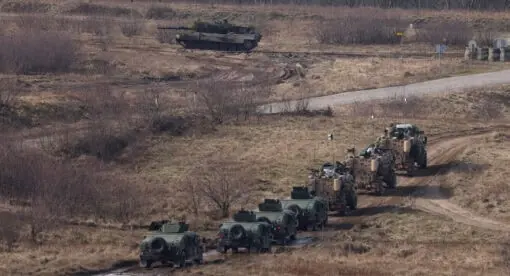A key unintended consequence of the longest war in U.S. history is Pakistan’s growing alignment with China. After decades of being a U.S. ally, Islamabad is increasingly dependent on Beijing — and at a time when China is emerging as Washington’s biggest foreign policy challenge. No other nation is perhaps as strategically sandwiched between the Americans and the Chinese as Pakistan. Join us for this conversation on what to expect in the world’s most populous region and the implications for U.S. interests.
Elizabeth Threlkeld: Senior Fellow and Deputy Director of the South Asia Program at the Stimson Center. Before joining Stimson, Threlkeld served as a Foreign Service Officer with the U.S. Department of State in Islamabad and Peshawar, Pakistan, and Monterrey, Mexico. Her research interests include South Asian geopolitics, ethno-nationalist conflict, and territorial disputes.
Syed Mohammed Ali: Professor of anthropology, international development, and human security courses at Johns Hopkins, Georgetown, and George Washington universities. Dr. Ali has two decades of experience working on major international development challenges including governance problems, issues of marginalization, and natural and man-made disasters. Ali is the author of Development, Poverty and Power in Pakistan: The Impact of State and Donor Interventions on Farmers (Routledge, 2015).
Kamran Bokhari is the Director of Analytical Development at the Newlines Institute. Dr. Bokhari is also a national security and foreign policy specialist at the University of Ottawa’s Professional Development Institute. Bokhari has also served as the Central Asia Studies Course Coordinator at the U.S. Department of State’s Foreign Service Institute.




